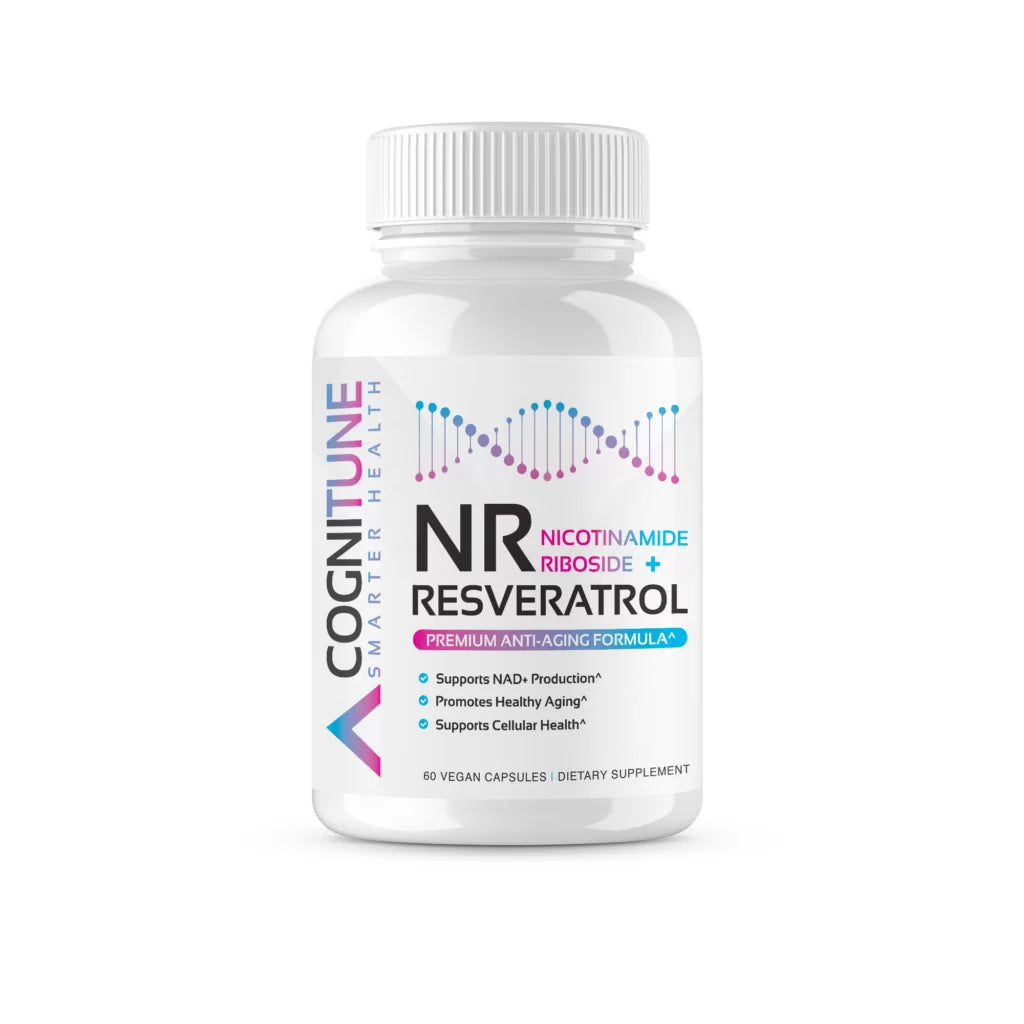Unlocking Longevity: 5 Scientifically Proven Strategies for a Vital Life

In the pursuit of a fulfilling and enduring life, the quest for longevity is a universal endeavor. As we navigate the complexities of modern existence, the desire to enhance our vitality and extend our years has become a focal point for many. Fortunately, science has uncovered a wealth of strategies that, when integrated into our lifestyles, can pave the way for a longer, healthier life. In this article, we delve into five simple yet scientifically proven strategies backed by research, offering insights into the path towards vitality.
Embrace Nutrient-Dense Eating Habits
At the core of longevity lies the foundation of a nutrient-rich diet. Consuming a variety of whole foods, such as fruits, vegetables, whole grains, and lean proteins, provides essential vitamins, minerals, and antioxidants crucial for cellular health and function. Research has repeatedly demonstrated the benefits of diets rich in plant-based foods, linking them to a reduced risk of chronic diseases like cardiovascular ailments and certain cancers.
One key aspect of nutrient-dense eating is the inclusion of natural supplements that complement a balanced diet. For instance, Omega-3 fatty acids, commonly found in fatty fish like salmon and in supplements derived from fish oil or algae, have been associated with lower inflammation levels and improved heart health. Additionally, the Mediterranean diet, renowned for its longevity-promoting properties, incorporates olive oil, a source of monounsaturated fats and potent antioxidants.
Prioritize Regular Physical Activity
The adage "move it or lose it" rings true when it comes to longevity. Engaging in regular physical activity not only supports cardiovascular health and weight management but also stimulates the production of endorphins, promoting mental well-being. Studies have shown that even moderate exercise, such as brisk walking, gardening, or dancing, can significantly reduce the risk of chronic conditions like diabetes and hypertension.
For those seeking to enhance their longevity through movement, incorporating natural supplements like Coenzyme Q10 (CoQ10) can offer notable benefits. CoQ10 plays a vital role in cellular energy production and has been linked to improved exercise performance and recovery. Whether through cardiovascular workouts, strength training, or yoga sessions, the key is finding activities that bring joy and sustainability to one's fitness routine.
Foster Strong Social Connections
Human beings are inherently social creatures, and the quality of our relationships can profoundly impact our health and longevity. Research suggests that individuals with robust social networks tend to have lower levels of stress, improved immune function, and a reduced risk of cognitive decline. Engaging in meaningful social interactions, whether through friendships, family ties, or community involvement, is a cornerstone of well-being.
Incorporating natural supplements that support cognitive function and mood regulation can further bolster the benefits of social connection. For instance, compounds like Bacopa monnieri, an herb traditionally used in Ayurvedic medicine, have been linked to enhanced memory and reduced anxiety. By nurturing relationships and actively participating in social activities, individuals can cultivate a sense of belonging and purpose that contributes to a vibrant, longer life.
Prioritize Quality Sleep
Amidst the hustle and bustle of modern life, the importance of adequate sleep cannot be overstated. Quality restorative sleep is essential for cellular repair, hormone regulation, and cognitive function. Chronic sleep deprivation, on the other hand, has been associated with an increased risk of obesity, diabetes, and cardiovascular disease.
Natural supplements such as melatonin, a hormone that regulates sleep-wake cycles, can aid in promoting restful sleep patterns. Additionally, herbs like valerian root and chamomile have calming properties that may facilitate relaxation before bedtime. Establishing a consistent sleep schedule, creating a conducive sleep environment, and practicing relaxation techniques can all contribute to improved sleep quality and longevity.
Cultivate Mindfulness and Stress Management
In the midst of life's challenges and uncertainties, the practice of mindfulness offers a powerful tool for longevity. Mindfulness, rooted in ancient contemplative traditions, involves paying attention to the present moment with openness and non-judgment. Research indicates that regular mindfulness practice can reduce stress levels, lower inflammation, and enhance overall well-being.
Natural supplements such as ashwagandha, an adaptogenic herb revered in Ayurvedic medicine, have been shown to help the body adapt to stress and promote relaxation. Additionally, incorporating practices like meditation, yoga, or deep breathing exercises into daily routines can foster resilience in the face of life's stressors.
In conclusion, the journey towards a longer, more vibrant life is paved with scientifically validated strategies that empower individuals to take charge of their health and well-being. By embracing nutrient-dense eating habits, prioritizing regular physical activity, fostering strong social connections, prioritizing quality sleep, and cultivating mindfulness, one can embark on a path towards vitality and longevity. Incorporating natural supplements that complement these lifestyle choices further enhances their benefits, offering a holistic approach to longevity that is grounded in science and wisdom.
References:
Sources:
Plan diet, chronic diseases
Zhang, et al., Dec 2015
https://www.ncbi.nlm.nih.gov/pmc/articles/PMC6331972/
Omega-3
Swanson, et al., Jan 2012
https://www.ncbi.nlm.nih.gov/pmc/articles/PMC3262608/
Mediterranean diet
Martini, Aug 2019
https://www.ncbi.nlm.nih.gov/pmc/articles/PMC6723598/
Exercise, cardio health
Myers, Jan 2003
https://www.ahajournals.org/doi/full/10.1161/01.CIR.0000048890.59383.8D
Exercise, weight
Cox, Aug 2017
https://www.ncbi.nlm.nih.gov/pmc/articles/PMC5556592/
Exercise, mental well-being
Anderson and Shivakumar, Apr 2013
https://www.ncbi.nlm.nih.gov/pmc/articles/PMC3632802/
Diabetes, exercise
Charatan, Aug 2001
https://www.ncbi.nlm.nih.gov/pmc/articles/PMC1120973/
Exercise, hypertension
Hegde and Solomon, Oct 2015
https://www.ncbi.nlm.nih.gov/pmc/articles/PMC4624627/
Coenzyme Q10
Cirilli, et al., Aug 2021
https://www.mdpi.com/2076-3921/10/8/1325
Social network, stress
Acoba, Feb 2024
https://www.frontiersin.org/journals/psychology/articles/10.3389/fpsyg.2024.1330720/full
Social, immune function
Copertaro, et al., Apr 2014
https://www.ncbi.nlm.nih.gov/pmc/articles/PMC4020546/
Social, cognitive decline
Mogic, et al., May 2023
https://systematicreviewsjournal.biomedcentral.com/articles/10.1186/s13643-023-02251-z
Bacopa monnieri
Fatima, et al., Aug 2022
https://www.frontiersin.org/articles/10.3389/fnut.2022.972379/full
Sleep, cellular repair
Sabot, et al., Mar 2023
https://www.sciencedirect.com/science/article/pii/S2666354622001673
Sleep, hormones
Kim, et al., Mar 2015
https://www.ncbi.nlm.nih.gov/pmc/articles/PMC4377487/
Sleep, cognitive
Gildner, et al., Jun 2014
https://www.ncbi.nlm.nih.gov/pmc/articles/PMC4031401/#:~:text=Results%3A,score%20(p%20%3C%200.05).
Melatonin
Costello, et al., Nov 2014
https://nutritionj.biomedcentral.com/articles/10.1186/1475-2891-13-106
Valerian root
Shinjyo, et al., Oct 2020
https://www.ncbi.nlm.nih.gov/pmc/articles/PMC7585905/
Chamomile
Srivastava, Feb 2011
https://www.ncbi.nlm.nih.gov/pmc/articles/PMC2995283/
Mindfulness, stress
Kriakous, et al., Sep 2020
https://www.ncbi.nlm.nih.gov/pmc/articles/PMC7511255/
Mindfulness, inflammation
Black and Slavich, Jan 2016
https://www.ncbi.nlm.nih.gov/pmc/articles/PMC4940234/
Ashwagandha
Lopresti, et al., 2019
https://journals.lww.com/md-journal/fulltext/2019/09130/an_investigation_into_the_stress_relieving_and.67.aspx

